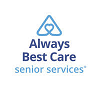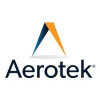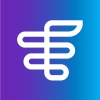Job Description
Job Description
Description : Job Duties :
Job Duties :
To include but not limited too :
Shall conduct Polysomnograms and Continuous Positive Airway Pressure (CPAPS) trials on patients in the sleep laboratory.
Scan patient’s health records for medical conditions and medications pertinent to the performance of each sleep laboratory procedure.
- Explain procedures and protocols to patients to insure patient comfort for optimal recording of test. Prepare patients for test by reassuring, providing basic education concerning nature of testing, allaying fears, or misconceptions.
- Assist patients in filling out various rating scales and questionnaires designed to measure aspects of the patient’s sleep in the laboratory and patient’s daytime symptoms.
Accurately measures and applies electrodes to designated areas.
- Applies respiratory belts, airflow thermistors and oximetry.
- Check electrodes for impedance and corrects and problems. Perform operator maintenance of all sleep laboratory equipment and request maintenance on equipment that he / she cannot maintain.
- Cleans or sterilizes electrodes ad thermistors as needed. Protect patient data from unauthorized release, alteration, or deletion per Privacy Act of 1974.
Follows regulations and instructions regarding access to computerized files, release of access codes, etc., as set forth in a computer access agreement which the employee signs.
- Operates polysomnographic recording instruments to obtain an Electroencephalographic record of a patient’s sleep. Conduct respiratory related treatment trials with nasal continuous positive airway pressure (CPAP) or bilevel positive airway pressure (BIPAP) in patients per sleep laboratory protocol or as instructed by the physician.
- Fit patient with appropriate mask size for CPAP trial, titrates CPAP pressure until the apneas and hypo apneas are eliminated or significantly reduced, and monitors the pulse oximeter for improvements in oxygenation, if patient does not respond to CPAP, then a trial with BIPAP is attempted.
Oxygen levels are monitored throughout the test by pulse oximeter and oxygen is administered to patients who have a doctor prescribed requirement.
- Recognizes and annotates normal sleep stages, obstructive, central, and mixed sleep apneas, sleep movements, nocturnal seizures, and parasomnias such as nocturnal myoclonus or REM behavior disorder.
- Monitor recorded eye movements, patient limb, and chin motion as recorded by surface electromyography, nasal airflow, thermistors, chest and abdominal strain gauges, ECG and pulse oximetry recordings and annotates record when these are abnormal or disturbed by artifact.
- Notifies doctor on call for ECG documented runs of ventricular tachycardia or asystole or for patient respiratory distress.
- Identifies nocturnal seizures when identified and annotate.
- Attach additional EEG electrodes to patients with suspicion of epilepsy. Annotates polysomnogram for changes in patient position.
- Scan and examine environment of recording to detect and eliminate possible sources of artifacts, recognizes artifacts as they occur in real time, works rapidly to diagnose, and eliminate artifacts to preserve the integrity of the recording and make changes in recording techniques and parameters to optimize display of the phenomenon in question.
- Operates a sound level meter to measure patient snoring if needed.
- Operates audiovisual recording instruments. Scores polysomnograms using computer assisted scoring program identifying sleep stages, apneas, oximetry readings, and movements partially while record is being produce, completing scoring at the end of the study.
- Print out scored data for inclusion with the polysomnogram for the physician to read and interpret study.
- Enter appointment schedules into computer and provides printed copies of same to all areas of the hospital connected with processing of sleep study patients.
- Maintain work area in clean and orderly condition.
- Prepare for emergencies, answer phones, and make appointments.
Requirements :
- Degree / Education : High School Diploma
- Certifications in addition to Basic Life Support : Must have an active BLS through American Heart Association or military program
- Experience : Polysomnography technician must have a minimum of two years of experience within the last three years working as Polysomnography / Sleep Technician
- Board Certification : Must be registered with the Board of Registered Polysomnographic Technologist.









